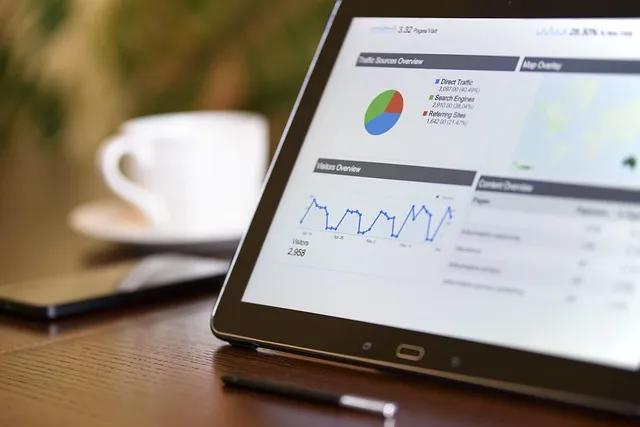Email marketing is a critical component of digital marketing strategies, allowing businesses to connect with their target audience through personalized content. It has evolved from basic newsletters to sophisticated campaigns using customer insights, data analysis, and automation. By segmenting recipients and optimizing messages based on behavior and interests, marketers can cut through noise, nurture leads, drive sales, and build brand loyalty. Key steps include defining clear goals, personalizing emails, offering valuable content, testing A/B variations, implementing limited-time promotions, and continually refining strategies based on performance metrics. Personalization, automation, and segmentation significantly boost engagement and conversion rates in an increasingly competitive digital landscape. Compliance with data protection regulations is crucial to maintain customer trust and avoid legal issues.
Email marketing is a powerful tool within the broader digital marketing strategy. In today’s interconnected world, understanding how to leverage email effectively can drive engagement, build relationships, and boost conversions. This article delves into the core aspects of successful email campaigns, offering insights on building targeted lists, crafting compelling content, personalizing messages, automating workflows, and measuring results. We’ll also explore legal considerations, ensuring compliance in this digital marketing strategy.
Understanding Email Marketing: A Digital Marketing Strategy

Email marketing is a powerful tool within the broader landscape of digital marketing, allowing businesses to directly engage with their target audience. It involves sending promotional or informational messages via email, fostering communication and building relationships with customers. This strategy has evolved significantly over time, transitioning from simple newsletter-style communications to sophisticated, data-driven campaigns that leverage customer insights for higher engagement rates.
In the digital age, where consumers are constantly bombarded with information, effective email marketing cuts through the noise by offering personalized content relevant to individual interests and behaviors. It enables businesses to nurture leads, drive sales, and foster brand loyalty. Through segmentation, automation, and analytics, digital marketers can optimize their campaigns, ensuring that messages reach the right people at the right time, enhancing the overall effectiveness of the Digital Marketing strategy.
Building an Effective Email Campaign: Tips and Best Practices

Building an effective email campaign is essential for any digital marketing strategy. Start by defining your goals and target audience; this will guide the content, tone, and timing of your emails. Personalization is key; address recipients by name, segment your list to send tailored messages, and use data-driven insights to create compelling subject lines that encourage opens.
Ensure your emails offer value through informative content, exclusive offers, or engaging storytelling. Maintain a clean and mobile-optimized design, as many users access emails on their smartphones. Regularly test A/B variations of your campaigns to optimize open rates, click-throughs, and conversions. Finally, foster a sense of urgency with limited-time promotions and track your results to continually refine and improve your email marketing strategy in line with Digital Marketing trends.
The Power of Personalization in Email Communication

In the realm of digital marketing, personalization has emerged as a game-changer. It involves tailoring email content to individual recipients, addressing them by name and aligning messages with their specific interests or previous interactions. This strategy goes beyond generic greetings; it’s about creating a unique experience for each subscriber. By leveraging customer data, businesses can craft highly relevant emails that resonate with the recipient’s needs and preferences.
Personalization enhances engagement and fosters stronger connections between brands and their audience. When an email feels like a personalized letter, readers are more likely to open, read, and even take action. This level of customization also allows for more effective segmenting, enabling marketers to send targeted campaigns that drive conversions. In today’s competitive digital marketing landscape, personalization is not just an option; it’s a necessity for capturing and retaining customer attention.
Automation and Segmentation: Enhancing Email Marketing Efficiency

In the realm of digital marketing, email automation and segmentation are powerful tools that significantly enhance marketing efficiency. Automation allows for personalized communication at scale, ensuring that each recipient receives content tailored to their interests and behaviors. This not only improves engagement but also saves substantial time and resources for marketers.
Segmentation further optimizes these efforts by dividing recipients into distinct groups based on demographics, purchasing history, or interactive patterns. Marketers can then craft targeted email campaigns, delivering the right message to the right person at the right time. This strategic approach fosters stronger connections with customers, driving higher conversion rates and contributing to overall Digital Marketing success.
Measuring Success: Key Metrics for Evaluating Email Campaigns

Measuring success is a vital aspect of email marketing in the realm of digital marketing, allowing marketers to understand the effectiveness of their campaigns and make data-driven decisions. Key metrics include open rates, which gauge how many recipients have opened your emails, providing insight into initial engagement. Click-through rates (CTRs) measure the action taken after opening, such as clicking on a link, indicating interest and conversion potential.
Additionally, unsubscription rates offer valuable feedback on customer satisfaction and preference, helping to refine future campaigns. Conversion rates are also crucial, especially for e-commerce, tracking how many recipients take a desired action (e.g., purchase) after engaging with the email content. These metrics collectively paint a picture of campaign performance, enabling marketers to optimize strategies and enhance the overall digital marketing effort.
Legal Considerations and Privacy in Email Marketing

In the realm of digital marketing, email campaigns are a powerful tool to engage with customers and drive sales. However, before sending out any emails, it’s crucial to understand the legal considerations and privacy aspects involved. Compliance with data protection regulations is paramount to avoid legal pitfalls and maintain customer trust.
The General Data Protection Regulation (GDPR) in Europe and other regional laws worldwide set standards for collecting, processing, and storing personal data, including email addresses. Marketers must obtain explicit consent from users before sending promotional emails, give clear options to unsubscribe, and ensure secure data handling practices. Adhering to these regulations not only protects individuals’ privacy but also builds a positive brand image by demonstrating respect for consumer choices in the digital marketing space.
